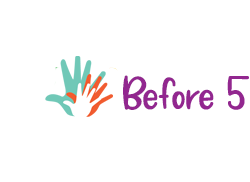I’m glad you’re joining us, as we continue to have conversations from Dr. Gary Chapman and Ross Campbell’s book, The 5 Love Languages of Children. Words of affirmation have a powerful impact on children not only at the time they are said, but later, too. Has something someone said to you as a child stayed with you even today? I heard often as a child when trying something new, “sure you can do it” and even to this day, those words are part of my internal dialogue when weighing doing something for the first time. These authors perfectly articulate “their words” in telling readers why words are so important when talking to children. Here is what Dr. Chapman and Ross Campbell say about words used with children, “In communicating love, words are powerful. Words of affection and endearment, words of praise and encouragement, words that give positive guidance all say, “I care about you.” Such words are like a gentle, warm rain falling on the soul; they nurture the child’s inner sense of worth and security. Even though such words are quickly said, they are not forgotten. A child reaps the benefits of affirming words for a lifetime. Conversely, cutting words, spoken our short-lived frustration, can hurt a child’s self-esteem, and cast doubts about his abilities. Children think we deeply believe what we say."
Words of Affirmation key concepts:
The Right Kind of Praise: Over the years, there has been many conversations about praising children. Should we praise often, over small accomplishments, be stingy with praise, or nearly never? What do you think? Did you receive praise when you were growing up? What kind? Personally, I lean toward the Goldilocks approach; not too much (big), not too little (small), just the right amount. But what is just the right amount for your child? Of course, that’s the tricky part. Here are a few suggestions from Dr. Chapman and Ross Campbell: praise should always be meaningful to your child, praise should be given when its’ justified, over-praising can cause your child to think every time they do something, they should be praised. It’s a slippery slope, deciding where the line for justified, earned praise is. And of course, some children need a heavier amount than others. You know your child best, lean on your parenting instincts on how much is the right amount of praise for your child.
The Power of Encouragement: I like this section begins with…. The word encourage means “to instill courage”. Children need encouragement/courage to attempt more. Our words either encourage or discourage our children’s efforts. When I think of encouraging children, I automatically think of, “Wow, look you did it! or that was so close.” Words of encouragement help motivate children to keep going when things become hard.
Right Message, Wrong Manner: With children, we want to be specific about what we are giving praise or encouragement for. An example might be, “I like you shared your favorite toy with your brother, I know sharing can be hard sometimes, but look at how happy your brother is, I’m proud of you.” The key take-away from this is concept is, it’s your kind tone, the positive and loving words you use that will carry the power of your words. The message is important, but the delivery defines the impact.
Words said to a child linger (in positive or negative ways). Be choosy with your words; they matter.
See you next time!



